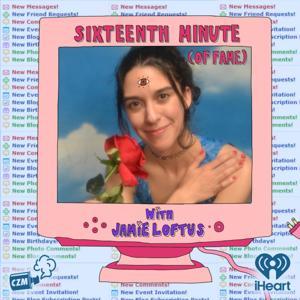We had to go to the cottage!!!
In this episode, Hope Rehak, (writer, educator, and the mind behind beloved Substack "Obsessions This Week") joins Hannah and Marcelle for a giddy and downright delectable conversation about the Canadian television hit, Heated Rivalry. The episode begins with us holding space for everyone's personal relationship to the series (*spoiler: we love it*), then promptly jumps into a rundown of how the show materially came to be! We discuss the popularity of MLM (men-loving-men) fiction written largely by women and trans men — and the correlated rise and mainstreaming of the romance genre. Hope introduces us to the idea of the androphillic gaze (listen to learn!) and offers a quick rundown of the state of fanfiction today. Hannah then offers some theory through Carlee Gomes' 2023 article, “The Puritanical Eye: Hyper-mediation, Sex on Film, and the Disavowal of Desire." What follows is a rich conversation about the myth of political perfection in media, the desire for escape under late capitalism, the perceived notion that consumer habits are the last site of autonomy and the very real pleasure of watching men be masculine, sexy, and tender. If you're interested in Heated Rivalry as its popularity relates to shadow politics, moral panics and the puritanical eye, then this episode is for you. If you just thought it was a horny and fun show, this episode is also for you.
Helpful Re-Listens That Relate to This Episode:Wicked: For Good x Femslash with Leena Norms
Fourth Wing x the Author Function
Bridgerton x Reading the Romance with Vanessa Zoltan
***
Works Cited
Gomes, Carlee. “The Puritanical Eye: Hyper-mediation, Sex on Film, and the Disavowal of Desire.” Lo Specchio Scuro 25 November 2023. https://specchioscuro.it/the-puritanical-eye-hyper-mediation-sex-on-film-and-the-disavowal-of-desire/.
Keshavarzi, Yalda. “Heated Rivalry and the erotics of equality.” Shado 14 January 2026. https://shado-mag.com/articles/opinion/heated-rivalry-and-the-erotics-of-equality/.
Kurzius, Rachel. “What happens when your gay hockey smut becomes a global phenomenon?” The Washington Post 5 December 2025. https://www.washingtonpost.com/entertainment/tv/2025/12/06/heated-rivalry-hbo-series-rachel-reid/.
Additional Shoutouts In This Episode:- Imani Barbarin (@crutches_and_spice)
- Janice Radway
Support Material GirlsTo learn more about the show, head to our Instagram at instagram.com/ohwitchplease! Or check out our website ohwitchplease.ca (you can also find transcripts here!). Want to support the podcast and our tiny, hard-working team? Check out all the content we have on our Patreon at Patreon.com/ohwitchplease. Bonus episodes, bloopers, merch, watch-alongs, and more! Need a last minute gift for a friend or family member? You can gift a Patreon subscription at this link: https://www.patreon.com/ohwitchplease/gift!
Music Credits:“Shopping Mall”: by Jay Arner and Jessica Delisle ©2020
Used by permission. All rights reserved. As recorded by Auto Syndicate on the album “Bongo Dance”.
Hosted on Acast. See acast.com/privacy for more information.




































